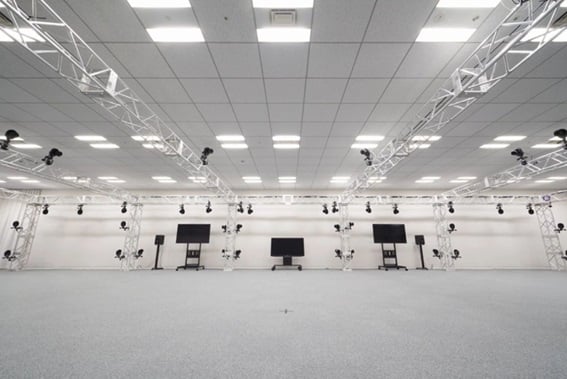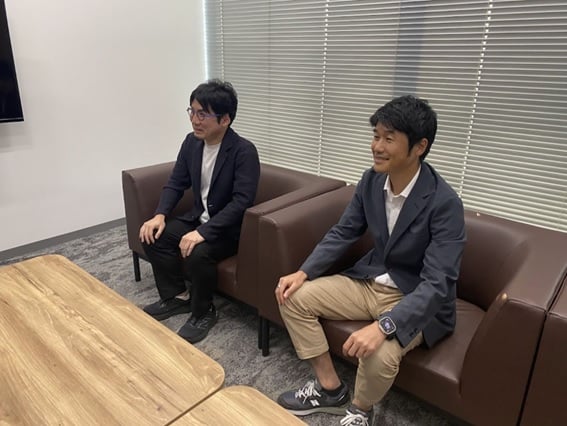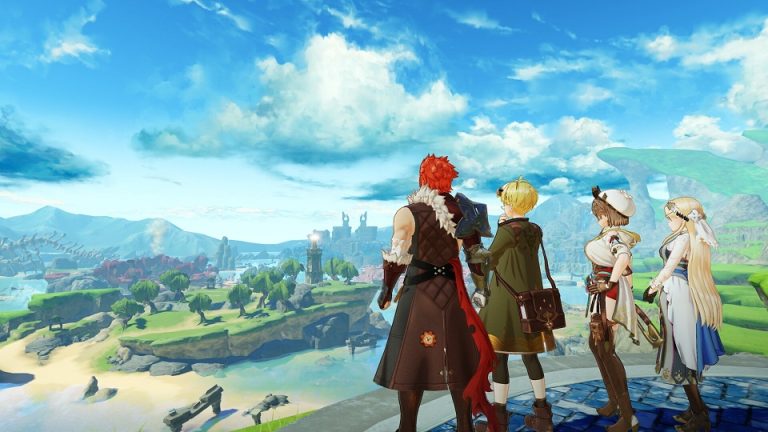COVER Corporation, the company behind virtual talent agency hololive, has always been tightly connected to the video game industry, be it through gameplay livestreams of their VTuber talents, their own development projects like hololive ERROR and Holoearth, or the fan community full of indie developers whose works can be appreciated thanks to the company’s in-house publishing label holo Indie. AUTOMATON recently sat down with COVER CEO Motoaki Tanigo (YAGOO) and promotion lead Ryota Aomi to talk about the future of COVER as a bridge between the VTubing business and the video game industry.
“So far, we’ve done video game livestreams, game development, game tournaments, and even offline game-related events like ‘hololive GAMERS fes. Cho-Cho-Cho-Cho GAMERS .’ I hope we get the chance to do more things related to video games in various different fields.” As YAGOO said, COVER is looking for opportunities to collaborate with game creators and other companies all across the globe. Right now, they are working on preparing the hololive OFFICIAL CARD GAME (hOCG) for an English release.
Aomi’s aspirations for COVER lie in the constant innovations that go beyond what is traditionally understood as a “game.” The Holoearth project, for example, was conceived as a platform that offers fans an opportunity to directly become a part of the VTuber experience – and Aomi hopes that, as the medium evolves, COVER will be able to deliver experiences that go even further.
“As someone who’s made console games before joining COVER, I can say that, due to game technology evolving so much, it feels like video games are slowly losing their original meaning, if that makes sense…The framework of games is becoming so spread out that there are so many titles stepping into the territory of ‘Is this really a game?’ and ‘It’s game-like but not actually a game.’ And I believe this evolution will continue, until one day video games are seamlessly integrated into our daily lives. That would just be the natural outcome of the evolution of technology, and it would be amazing if we could provide our fans such new experiences as soon as possible,” Aomi told AUTOMATON.
The VTuber business and the game industry go pretty much hand in hand, and YAGOO admits that one of the reasons COVER is able to continue fostering that relationship is because it serves as the meeting ground for many creatives throughout the different fields of entertainment. For example, “real-time motion technology for 3D models is something that you can only see within the game industry,” says YAGOO. “But people with skills in TV broadcasting or music-related fields are also a part of that equation. In the case of our studios, people with backgrounds in the video game industry are the ones making the virtual sets, however, operations are led by directors from TV broadcasting stations. It’s kind of like people from different fields of work are being posed with the question How do we utilize video game technology?’”

Image Credit: https://coveredge.cover-corp.com/list/497
Aomi adds that COVER being located in Japan and anchoring itself in Japanese culture is what helped elevate the collaborative force of creatives from all corners of the entertainment industry. “Looking at COVER Corp. right now, I am certain that we managed to gather strong human resources precisely because we’re doing our business in Japan. Japan is full of game developers, people who work in the entertainment industry, and the anime industry. And I personally believe that such an environment wouldn’t be possible in any other country. It truly feels like the ‘generation that grew up with games and anime’ which Japan has fostered throughout decades, is congregating right here,” he comments.
As a company where many different parts of the entertainment industry overlap, COVER has become “a place where all of Japanese culture gathers,” Aomi explains. However, YAGOO reminds us that a lot of COVER’s success is owed not just to the creatives who helped build it, but the fans and community it’s been nurturing throughout the years. “This is something we’ve constantly been emphasizing, but we aren’t an ‘IP’ company – we’re a company of ‘community.’”
[Interviewer, writer: Kousaku Akano]
[Editor: Sayoko Narita]
© COVER





